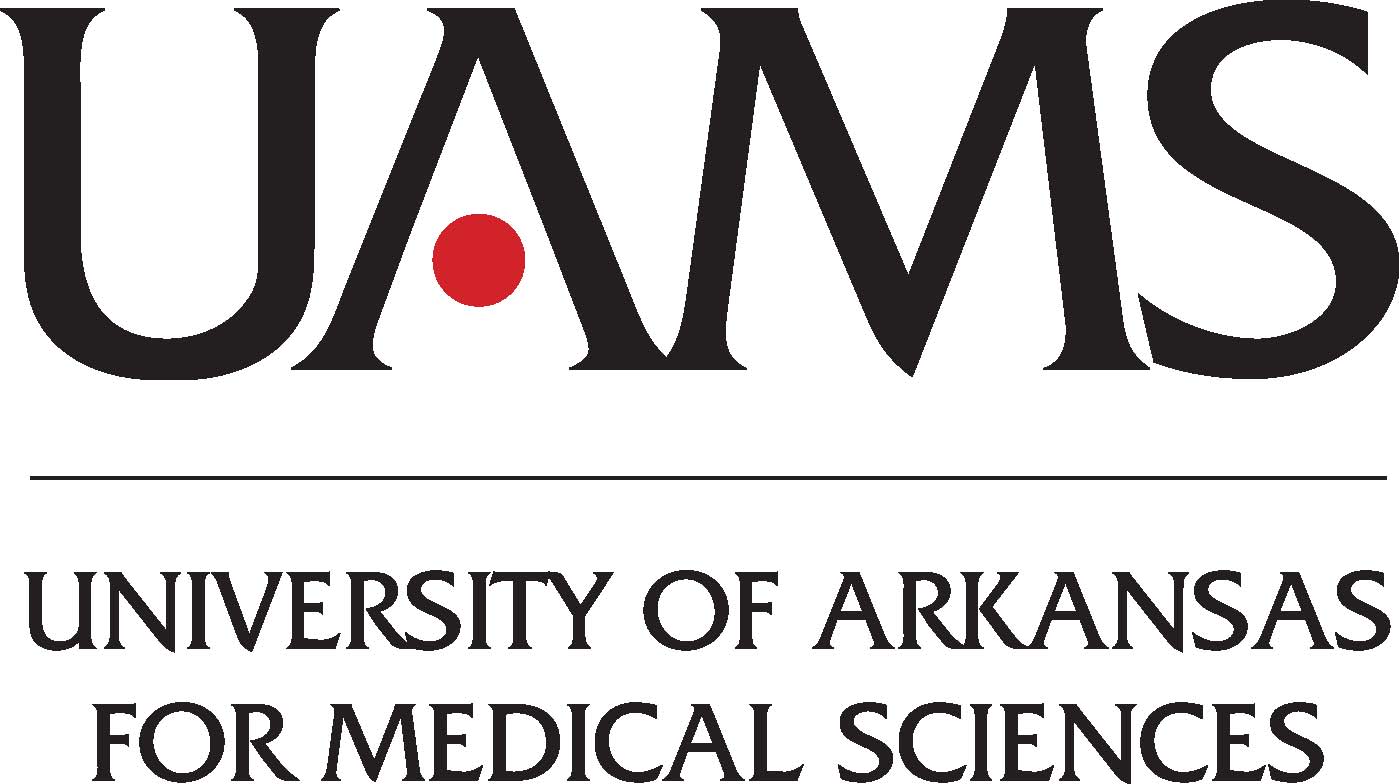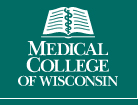Surgery to Remove Sentinel Lymph Nodes With or Without Removing Lymph Nodes in the Armpit in Treating Women With Breast Cancer
| Status: | Completed |
|---|---|
| Conditions: | Breast Cancer, Cancer |
| Therapuetic Areas: | Oncology |
| Healthy: | No |
| Age Range: | 18 - Any |
| Updated: | 12/15/2017 |
| Start Date: | May 1999 |
| End Date: | February 2014 |
A Randomized, Phase III Clinical Trial to Compare Sentinel Node Resection to Conventional Axillary Dissection in Clinically Node-Negative Breast Cancer Patients
RATIONALE: Removing the sentinel lymph nodes and examining them under a microscope may help
plan more effective surgery for breast cancer. It is not yet known if surgery to remove the
sentinel lymph nodes is more effective with or without removal of the lymph nodes in the
armpit in treating breast cancer.
PURPOSE: Randomized phase III trial to compare the effectiveness of surgery to remove the
sentinel lymph nodes with or without removal of lymph nodes in the armpit in treating women
who have breast cancer.
plan more effective surgery for breast cancer. It is not yet known if surgery to remove the
sentinel lymph nodes is more effective with or without removal of the lymph nodes in the
armpit in treating breast cancer.
PURPOSE: Randomized phase III trial to compare the effectiveness of surgery to remove the
sentinel lymph nodes with or without removal of lymph nodes in the armpit in treating women
who have breast cancer.
OBJECTIVES:
- Compare the long term control of regional disease by sentinel node resection vs sentinel
node resection followed by conventional axillary dissection in women with breast cancer
who are clinically node negative and pathologically sentinel node negative.
- Compare the effect of these two regimens on the overall and disease-free survival of
these patients.
- Compare the morbidity associated with these two regimens in these patients.
- Compare the prognostic value of these two regimens in patients who are sentinel node
negative or positive by pathology.
- Determine whether a more detailed pathology investigation can identify a group of
patients with a potentially increased risk of systemic recurrence who are node negative
by pathology.
- Determine the technical success rate of sentinel node dissection and the variability of
technical success rate in a broad population of surgeons.
- Determine the sensitivity of the sentinel node to determine the presence of nodal
metastases in these patients.
Objectives of quality of life questionnaire in sentinel node-negative patients:
- Compare the severity of self-assessed symptoms and activity limitations of patients
treated with these two regimens.
- Compare the severity of self-assessed symptoms and activity limitations after breast
cancer surgery in patients whose surgery was on the dominant side vs patients whose
surgery was on the non-dominant side.
- Compare the impact of arm edema, range of motion, and sensory neuropathy on
self-assessed measures of daily functioning, symptoms, and overall quality of life of
patients treated with these regimens.
OUTLINE: This is a randomized study. Patients are stratified according to the surgical
treatment plan (lumpectomy vs mastectomy), age (49 and under vs 50 and over), and clinical
tumor size (no greater than 2.0 cm vs 2.1-4.0 cm vs at least 4.1 cm). Patients are randomized
to one of two surgery arms.
All patients receive technetium (Tc 99m) sulfur colloid injected into normal breast tissue
within 1 cm of the primary tumor or biopsy cavity and an intradermal injection of technetium
(Tc 99m) sulfur colloid, approximately 0.5-8 hours before surgery. Patients also receive an
injection of isosulfan blue dye around the tumor or biopsy cavity after a hot spot is
identified with a gamma detector. If a hot spot is not identified, the blue dye is injected
after a saline bolus injection.
- Arm I: Patients undergo sentinel node resection immediately followed by conventional
axillary dissection.
- Arm II: Patients undergo sentinel node resection and an intraoperative examination of
sentinel nodes.
Patients with positive sentinel nodes undergo axillary dissection after sentinel node
resection.
Patients with cytologically negative sentinel nodes do not undergo axillary dissection.
Patients with cytologically negative but histologically positive sentinel nodes return to
surgery for axillary dissection.
Patients with histologically positive sentinel nodes and those in whom the sentinel node is
not identified undergo axillary dissection after sentinel node resection.
Patients with pathologically positive, nonaxillary sentinel nodes undergo axillary dissection
after sentinel node resection.
Patients with evidence of tumor remaining after surgery undergo a total mastectomy.
Quality of life is assessed at baseline, at weeks 1-3, and then every 6 months for 3 years or
until recurrence.
Patients are followed at 1 and 3 weeks, every 6 months for 3 years, and then annually
thereafter.
PROJECTED ACCRUAL: Approximately 5,400 patients will be accrued for this study within 4
years.
- Compare the long term control of regional disease by sentinel node resection vs sentinel
node resection followed by conventional axillary dissection in women with breast cancer
who are clinically node negative and pathologically sentinel node negative.
- Compare the effect of these two regimens on the overall and disease-free survival of
these patients.
- Compare the morbidity associated with these two regimens in these patients.
- Compare the prognostic value of these two regimens in patients who are sentinel node
negative or positive by pathology.
- Determine whether a more detailed pathology investigation can identify a group of
patients with a potentially increased risk of systemic recurrence who are node negative
by pathology.
- Determine the technical success rate of sentinel node dissection and the variability of
technical success rate in a broad population of surgeons.
- Determine the sensitivity of the sentinel node to determine the presence of nodal
metastases in these patients.
Objectives of quality of life questionnaire in sentinel node-negative patients:
- Compare the severity of self-assessed symptoms and activity limitations of patients
treated with these two regimens.
- Compare the severity of self-assessed symptoms and activity limitations after breast
cancer surgery in patients whose surgery was on the dominant side vs patients whose
surgery was on the non-dominant side.
- Compare the impact of arm edema, range of motion, and sensory neuropathy on
self-assessed measures of daily functioning, symptoms, and overall quality of life of
patients treated with these regimens.
OUTLINE: This is a randomized study. Patients are stratified according to the surgical
treatment plan (lumpectomy vs mastectomy), age (49 and under vs 50 and over), and clinical
tumor size (no greater than 2.0 cm vs 2.1-4.0 cm vs at least 4.1 cm). Patients are randomized
to one of two surgery arms.
All patients receive technetium (Tc 99m) sulfur colloid injected into normal breast tissue
within 1 cm of the primary tumor or biopsy cavity and an intradermal injection of technetium
(Tc 99m) sulfur colloid, approximately 0.5-8 hours before surgery. Patients also receive an
injection of isosulfan blue dye around the tumor or biopsy cavity after a hot spot is
identified with a gamma detector. If a hot spot is not identified, the blue dye is injected
after a saline bolus injection.
- Arm I: Patients undergo sentinel node resection immediately followed by conventional
axillary dissection.
- Arm II: Patients undergo sentinel node resection and an intraoperative examination of
sentinel nodes.
Patients with positive sentinel nodes undergo axillary dissection after sentinel node
resection.
Patients with cytologically negative sentinel nodes do not undergo axillary dissection.
Patients with cytologically negative but histologically positive sentinel nodes return to
surgery for axillary dissection.
Patients with histologically positive sentinel nodes and those in whom the sentinel node is
not identified undergo axillary dissection after sentinel node resection.
Patients with pathologically positive, nonaxillary sentinel nodes undergo axillary dissection
after sentinel node resection.
Patients with evidence of tumor remaining after surgery undergo a total mastectomy.
Quality of life is assessed at baseline, at weeks 1-3, and then every 6 months for 3 years or
until recurrence.
Patients are followed at 1 and 3 weeks, every 6 months for 3 years, and then annually
thereafter.
PROJECTED ACCRUAL: Approximately 5,400 patients will be accrued for this study within 4
years.
DISEASE CHARACTERISTICS:
- Resectable invasive adenocarcinoma of the breast, confirmed by 1 of the following:
- Histologically confirmed by core or open biopsy
- Confirmed by fine needle aspiration cytology AND positive clinical breast
examination and ultrasound or mammography
- Clinically negative lymph nodes
- No positive ipsilateral axillary lymph nodes
- No prior removal of ipsilateral axillary lymph nodes
- No suspicious palpable nodes in the contralateral axilla or palpable
supraclavicular or infraclavicular nodes, unless proven nonmalignant by biopsy
- No ulceration, erythema, infiltration of the skin or underlying chest wall (complete
fixation), peau d'orange, or skin edema of any magnitude
- Tethering or dimpling of the skin or nipple inversion allowed
- No bilateral malignancy or mass in the opposite breast that is suspicious for
malignancy, unless proven nonmalignant by biopsy
- No diffuse tumors or multiple malignant tumors in different quadrants of the breast
- No other prior breast malignancy except lobular carcinoma in situ
- No prior or concurrent breast implants
- Hormone receptor status:
- Not specified
PATIENT CHARACTERISTICS:
Age:
- 18 years and older
Sex:
- Female
Menopausal status:
- Not specified
Performance status:
- Not specified
Life expectancy:
- At least 10 years (excluding diagnosis of cancer)
Hematopoietic:
- Not specified
Hepatic:
- No hepatic systemic disease
Renal:
- No renal systemic disease
Cardiovascular:
- No cardiovascular systemic disease
Other:
- No prior malignancy within past 5 years except:
- Effectively treated squamous cell or basal cell skin cancer
- Surgically treated carcinoma in situ of the cervix
- Surgically treated lobular carcinoma in situ of the ipsilateral or contralateral
breast
- No concurrent psychiatric or addictive disorder
PRIOR CONCURRENT THERAPY:
Biologic therapy:
- No prior immunotherapy for this cancer
Chemotherapy:
- No prior chemotherapy for this cancer, including neoadjuvant chemotherapy
Endocrine therapy:
- No prior hormonal therapy for this cancer
Radiotherapy:
- No prior radiotherapy for this cancer
Surgery:
- See Disease Characteristics
- No prior breast reduction surgery
- Prior excisional biopsy or lumpectomy allowed
We found this trial at
69
sites
Click here to add this to my saved trials
City of Hope Comprehensive Cancer Center City of Hope is a leading research and treatment...
Click here to add this to my saved trials
Cancer Research Center of Hawaii The University of Hawaii Cancer Center is the only National...
Click here to add this to my saved trials
529 West Markham Street
Little Rock, Arkansas 72205
Little Rock, Arkansas 72205
(501) 686-7000

University of Arkansas for Medical Sciences The University of Arkansas for Medical Sciences (UAMS) in...
Click here to add this to my saved trials
11234 Anderson Street
Loma Linda, California 92354
Loma Linda, California 92354
(909) 558-4126

Loma Linda University Cancer Institute at Loma Linda University Medical Center Loma Linda University Cancer...
Click here to add this to my saved trials
CCOP - Mount Sinai Medical Center The Mount Sinai Community Clinical Oncology Program (MSCCOP) is...
Click here to add this to my saved trials
4502 Medical Drive
San Antonio, Texas 78284
San Antonio, Texas 78284
(210) 567-7000

University of Texas Health Science Center at San Antonio The University of Texas Health Science...
Click here to add this to my saved trials
San Diego, CA 92120Bus: -
San Diego, California 92120
San Diego, California 92120
Click here to add this to my saved trials
Click here to add this to my saved trials
5301 East Huron River Drive
Ann Arbor, Michigan 48106
Ann Arbor, Michigan 48106
1.877.590.5995

CCOP - Michigan Cancer Research Consortium The Community Clinical Oncology Program (CCOP) is a comprehensive...
Click here to add this to my saved trials
Click here to add this to my saved trials
Eastern Maine Medical Center Located in Bangor, Eastern Maine Medical Center (EMMC) serves communities throughout...
Click here to add this to my saved trials
Click here to add this to my saved trials
Click here to add this to my saved trials
Click here to add this to my saved trials
Click here to add this to my saved trials
Click here to add this to my saved trials
Click here to add this to my saved trials
Click here to add this to my saved trials
Click here to add this to my saved trials
Click here to add this to my saved trials
Click here to add this to my saved trials
CCOP - Columbus As one of the original 20 CCOPs, the Columbus Community Clinical Oncology...
Click here to add this to my saved trials
Geisinger Medical Center Since 1915, Geisinger Medical Center has been known as the region’s resource...
Click here to add this to my saved trials
Click here to add this to my saved trials
300 East Locust St., Ste 350
Des Moines, Iowa 50309
Des Moines, Iowa 50309
(515) 244-7586
CCOP - Iowa Oncology Research Association The Iowa Oncology Research Association (IORA) was established by...
Click here to add this to my saved trials
2799 W Grand Blvd
Detroit, Michigan 48202
Detroit, Michigan 48202
(888) 777-4167

Josephine Ford Cancer Center at Henry Ford Hospital A diagnosis of cancer is one of...
Click here to add this to my saved trials
Click here to add this to my saved trials
Click here to add this to my saved trials
CCOP - Grand Rapids The Grand Rapids Clinical Oncology Program (GRCOP) is a community cancer...
Click here to add this to my saved trials
The Hartford Hospital Hartford Hospital is the major teaching hospital affiliated with the University of...
Click here to add this to my saved trials
Click here to add this to my saved trials
Click here to add this to my saved trials
Click here to add this to my saved trials
Click here to add this to my saved trials
Click here to add this to my saved trials
Click here to add this to my saved trials
8800 W. Doyne Avenue
Milwaukee, Wisconsin 53226
Milwaukee, Wisconsin 53226
(414) 805-6840

Medical College of Wisconsin Cancer Center Cancer touches everyone in our community, and for many,...
Click here to add this to my saved trials
Click here to add this to my saved trials
Click here to add this to my saved trials
Click here to add this to my saved trials
New Orleans, Louisiana 70112
Click here to add this to my saved trials
Newark Beth Israel Medical Center Newark Beth Israel Medical Center, a regional care, teaching hospital...
Click here to add this to my saved trials
Click here to add this to my saved trials
Click here to add this to my saved trials
Click here to add this to my saved trials
111 S 11th St,
Philadelphia, Pennsylvania 19107
Philadelphia, Pennsylvania 19107
(877) 503-8350

Kimmel Cancer Center at Thomas Jefferson University - Philadelphia The Kimmel Cancer Center at Jefferson...
Click here to add this to my saved trials
Click here to add this to my saved trials
Click here to add this to my saved trials
Click here to add this to my saved trials
Click here to add this to my saved trials
Click here to add this to my saved trials
Click here to add this to my saved trials
Click here to add this to my saved trials
Click here to add this to my saved trials
Click here to add this to my saved trials
Sarasota Memorial Hospital Sarasota Memorial Health Care System, an 806-bed regional medical center, is among...
Click here to add this to my saved trials
Click here to add this to my saved trials
Click here to add this to my saved trials
Click here to add this to my saved trials
Click here to add this to my saved trials
Click here to add this to my saved trials
Click here to add this to my saved trials
Click here to add this to my saved trials
Click here to add this to my saved trials
Medical Center Boulevard
Winston-Salem, North Carolina 27157
Winston-Salem, North Carolina 27157
336-716-2255

Comprehensive Cancer Center of Wake Forest University Our newly expanded Comprehensive Cancer Center is the...
Click here to add this to my saved trials
Worcester, Massachusetts 01655
Click here to add this to my saved trials
Click here to add this to my saved trials









